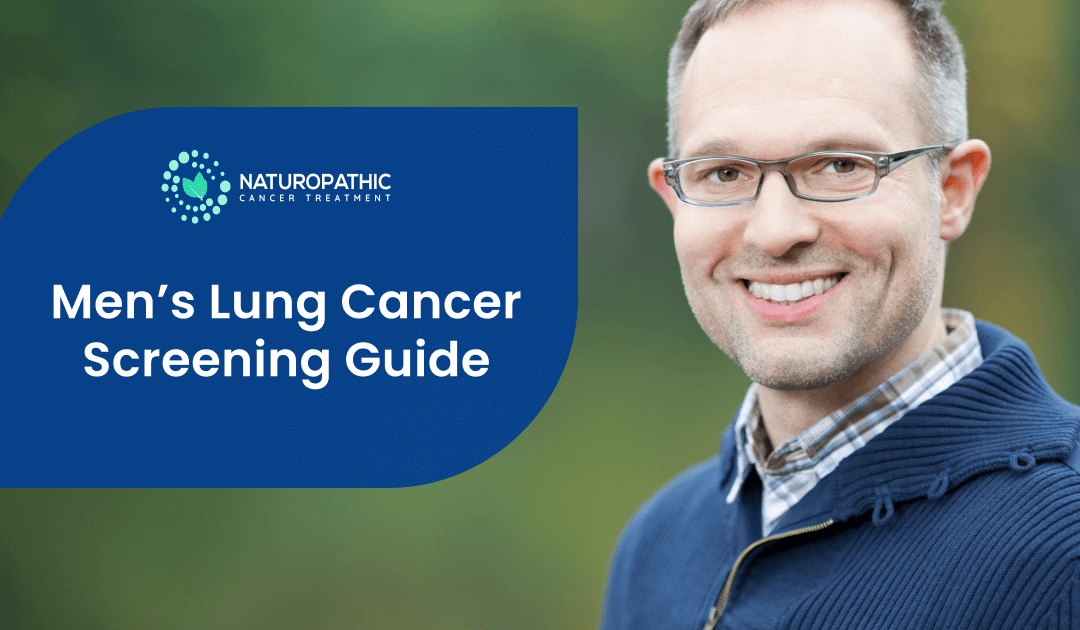Lung cancer is the most common cancer worldwide, with more men being diagnosed.
If lung cancer is detected before it has spread to other areas in the body, the five year survival rate is 56%. The problem is:
Only 16% of lung cancers are diagnosed before it has spread.
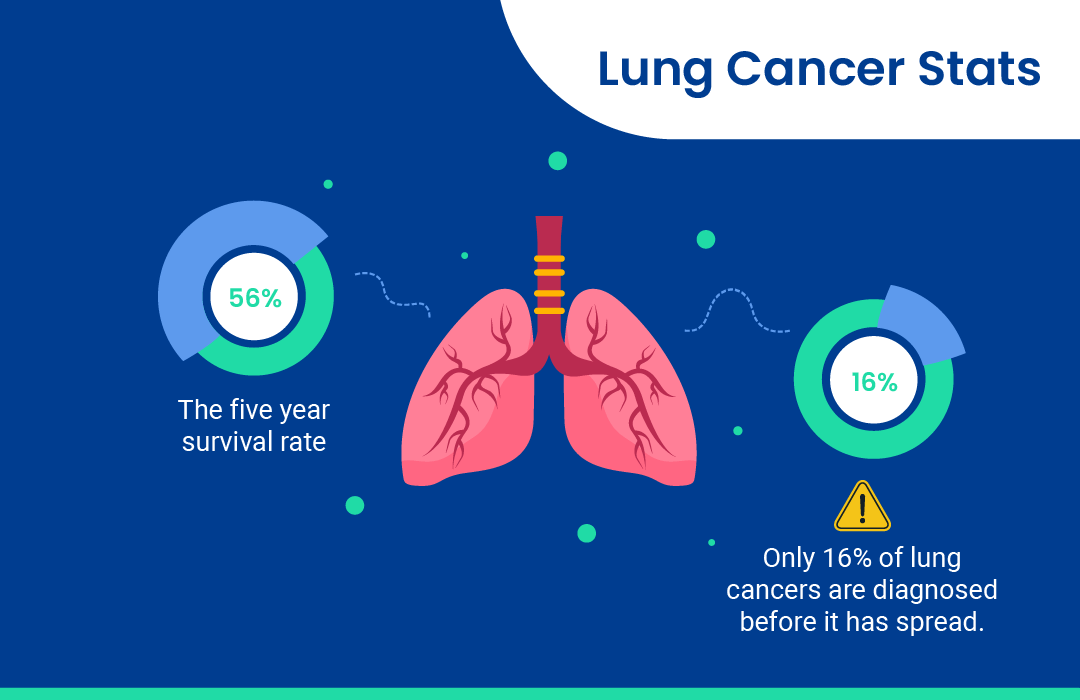
More than half of the people diagnosed with lung cancer die within the first year due to already having metastatic spread at the time of diagnosis, which is why it is imperative to be screened annually for lung cancer if you fit the criteria to do so.
For a handy reference, I created a downloadable PDF cheatsheet for the important points from this article. Download it here »
What Kind of Lung Cancer Screening Should You Get?
The only recommended screening test for lung cancer is low-dose CT scan (LDCT). During a LDCT scan, you lie on a table and an X-ray machine uses a low dose of radiation to make detailed images of your lungs.
This makes lung cancer screening effective at catching lung cancer when it happens, even before it has a chance to spread. But if you never test, you’ll never know.
Thankfully, the scan only takes a few minutes and is not painful.
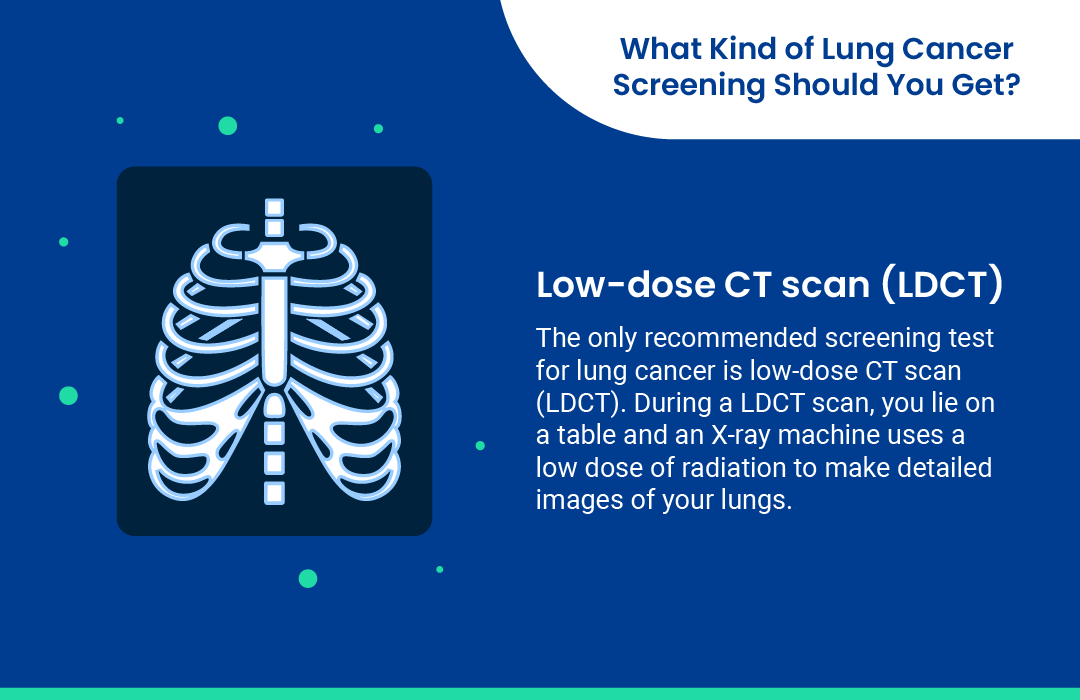
But this leads us to our next question:
Who Should Be Screened?
Not everyone should be performing regular lung cancer screenings. As you might expect, those particularly at risk include those who have a history of smoking within the last 15 years.
The U.S. Preventive Services Task Force (USPSTF) recommends yearly lung cancer screening with LDCT for people who:
- Have a 20 pack-year or more smoking history, and
- Smoke now or have quit within the past 15 years, and
- Are between 50 and 80 years old.
A pack-year is smoking an average of one pack of cigarettes per day for one year. For example, a person could have a 20 pack-year history by smoking one pack a day for 20 years or two packs a day for 10 years.
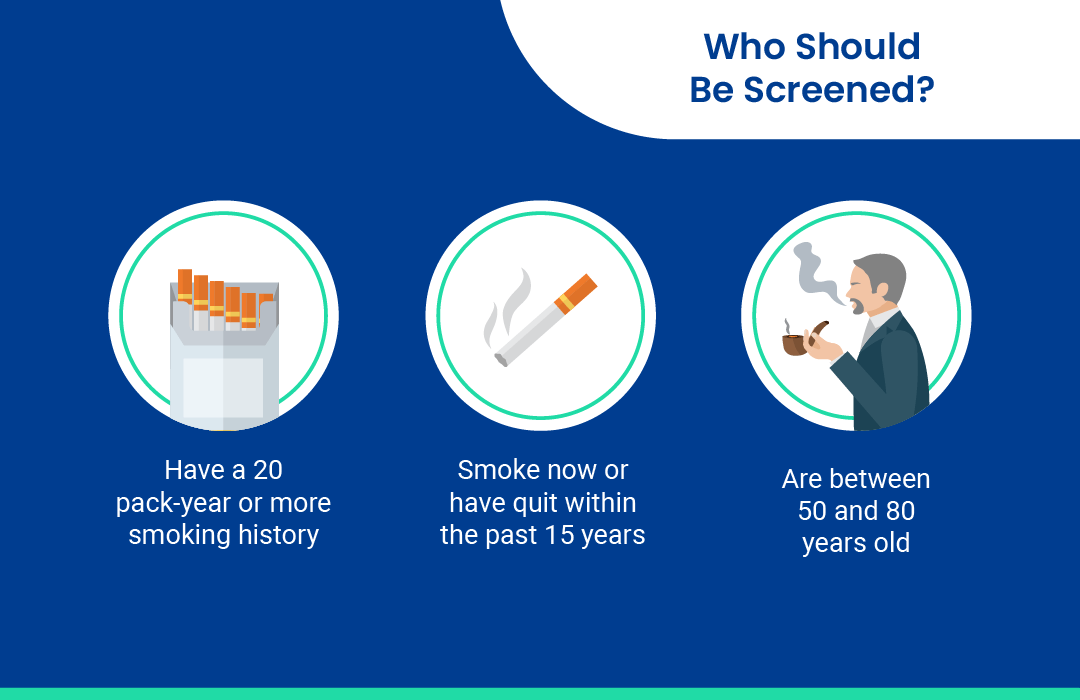
If you are wondering if insurance will cover your screening exam, I would encourage you to call your insurance company and ask them which tests are covered for your annual examination. Based on your health history, you may be eligible for some tests that you may not have been aware of. Each insurance carrier is different with what they’ll cover as well as your individual plan.
Are there any Risks of Screening?
There are risks associated with lung cancer screening, which is why it’s only recommended for those individuals who are “high risk.” The known risks for screening are:
- A False-positive result. False-positive results can lead to follow-up tests and surgeries that are not needed and may have more risks. This is a test that comes up positive for lung cancer but when in fact there is no lung cancer present.
- Any additional exposure to radiation from repeated LDCT tests may cause cancer in otherwise healthy people.
If you are thinking about getting screened, talk to your doctor. If lung cancer screening is right for you, your doctor can refer you to a high-quality screening facility.
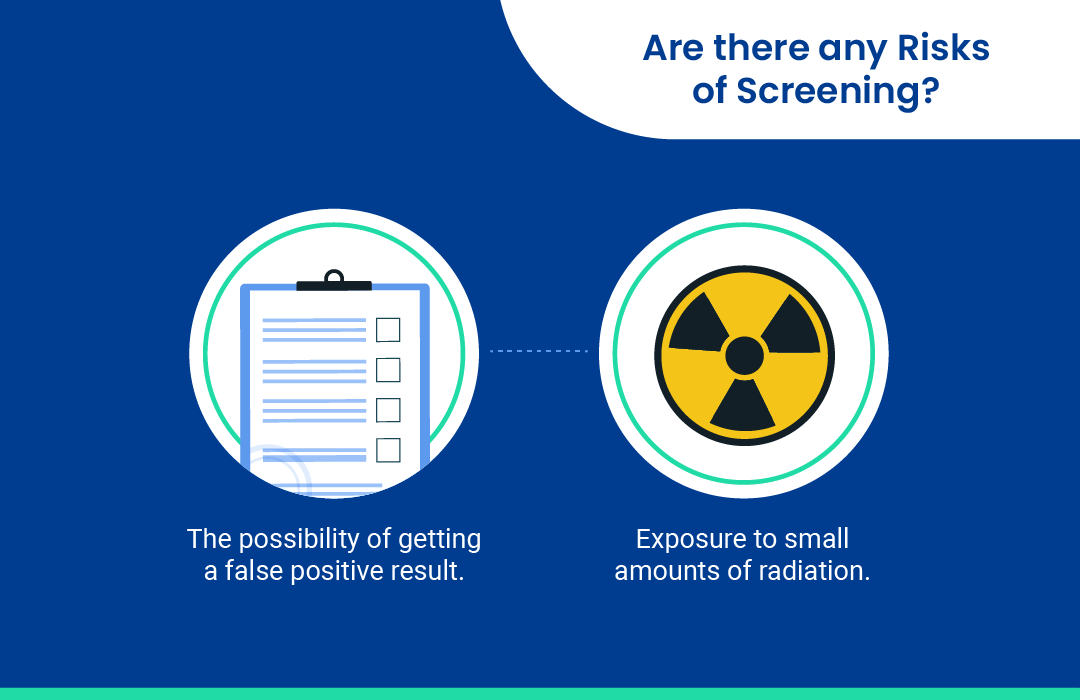
The best way to prevent lung cancer is to not smoke and to avoid secondhand smoke. Lung cancer screening is not a substitute for quitting smoking. If you have questions about how to quit smoking or need assistance you can find out more information about free programs through the Washington State QuitLine here: https://www.doh.wa.gov/YouandYourFamily/Tobacco/HowtoQuit
When Should Screening Stop?
The United States Preventative Task Force (USPTF) recommends that yearly lung cancer screening stop when the person being screened…
- Turns 81 years old, or
- Has not smoked in 15 or more years, or
- Develops a health problem that makes him or her unwilling or unable to have surgery if lung cancer is found.
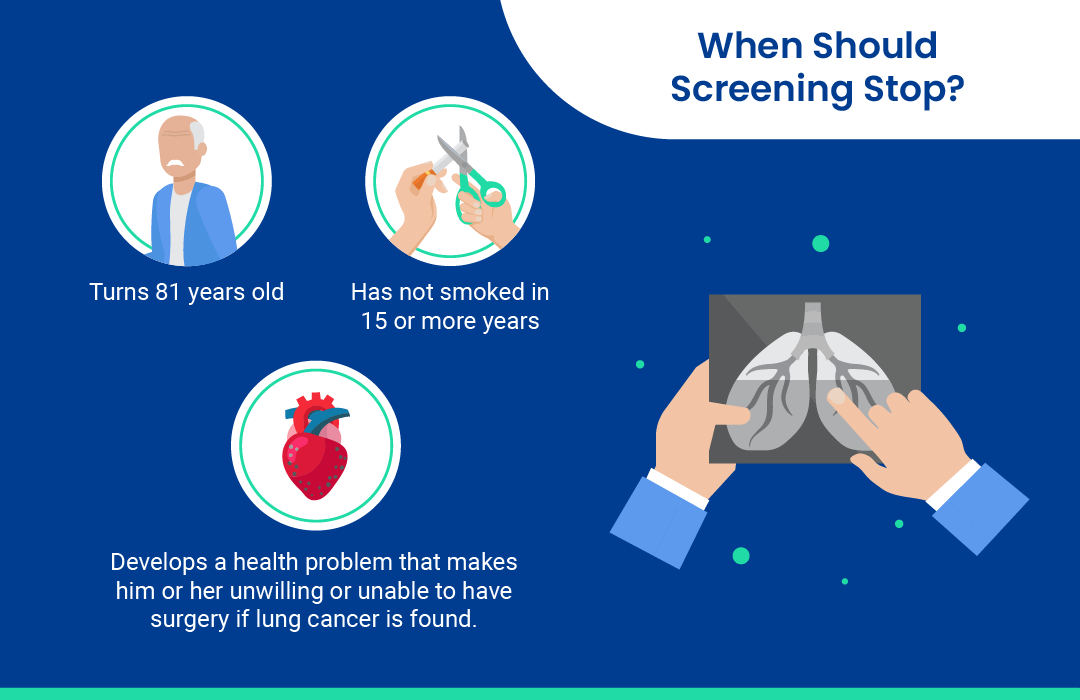
Where are these screenings performed?
Talk with your primary care doctor or local hospital.
If you have a community clinic, usually they will set up some health screening opportunities throughout the year, I would encourage you to contact them as well.
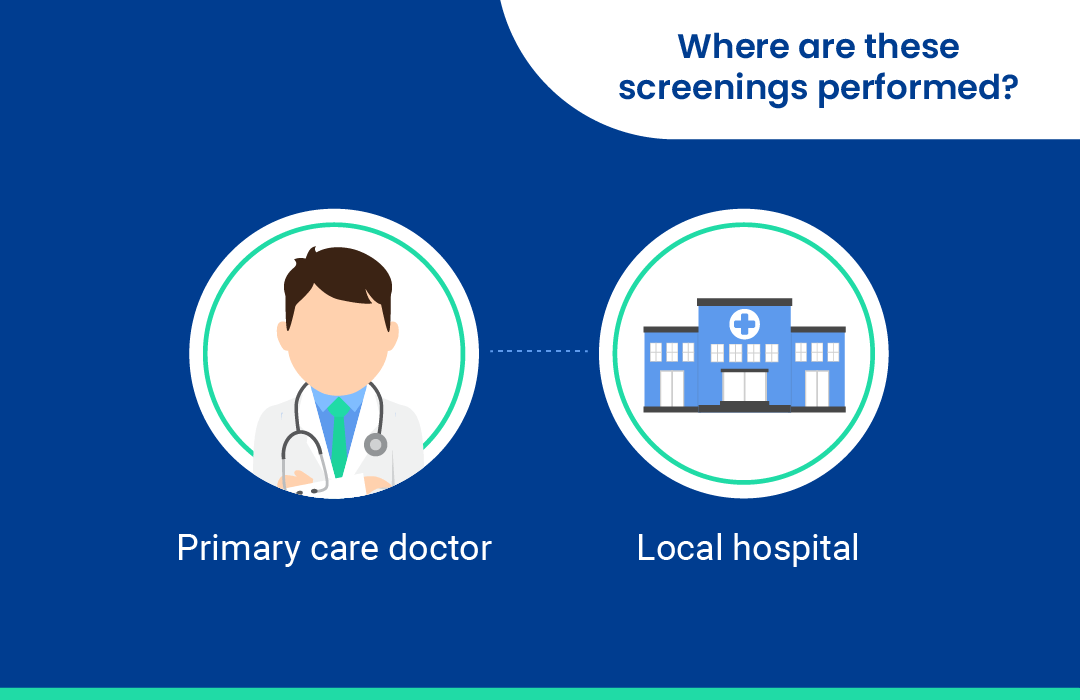
Are you interested in going one step further and figuring out all the tests that you should be screened for?
The Office of Disease Prevention and Health Promotion has a great tool to determine which tests you need based on your age, gender and if you’re pregnant. This can be a proactive, preventative resource to complete prior to your annual wellness exam so you will know which tests you’re eligible for. https://health.gov/myhealthfinder
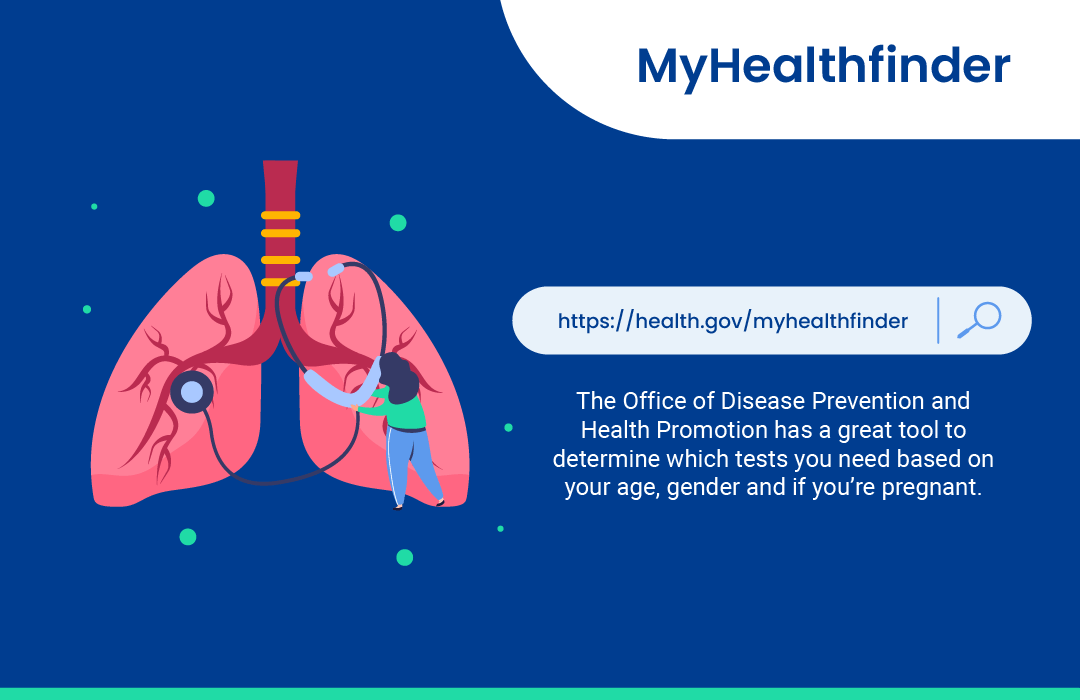
Download and print the Lung Cancer Screening Cheatsheet to have a quick reference to the important points from this post. Know when to get screened, when to stop, and helpful resources.
Please note: This information is not meant to replace medical advice and is purely for educational purposes, please contact your doctor to discuss which tests are right for you. If you which to discuss this with Dr. McMurry, please set up an appointment here »

